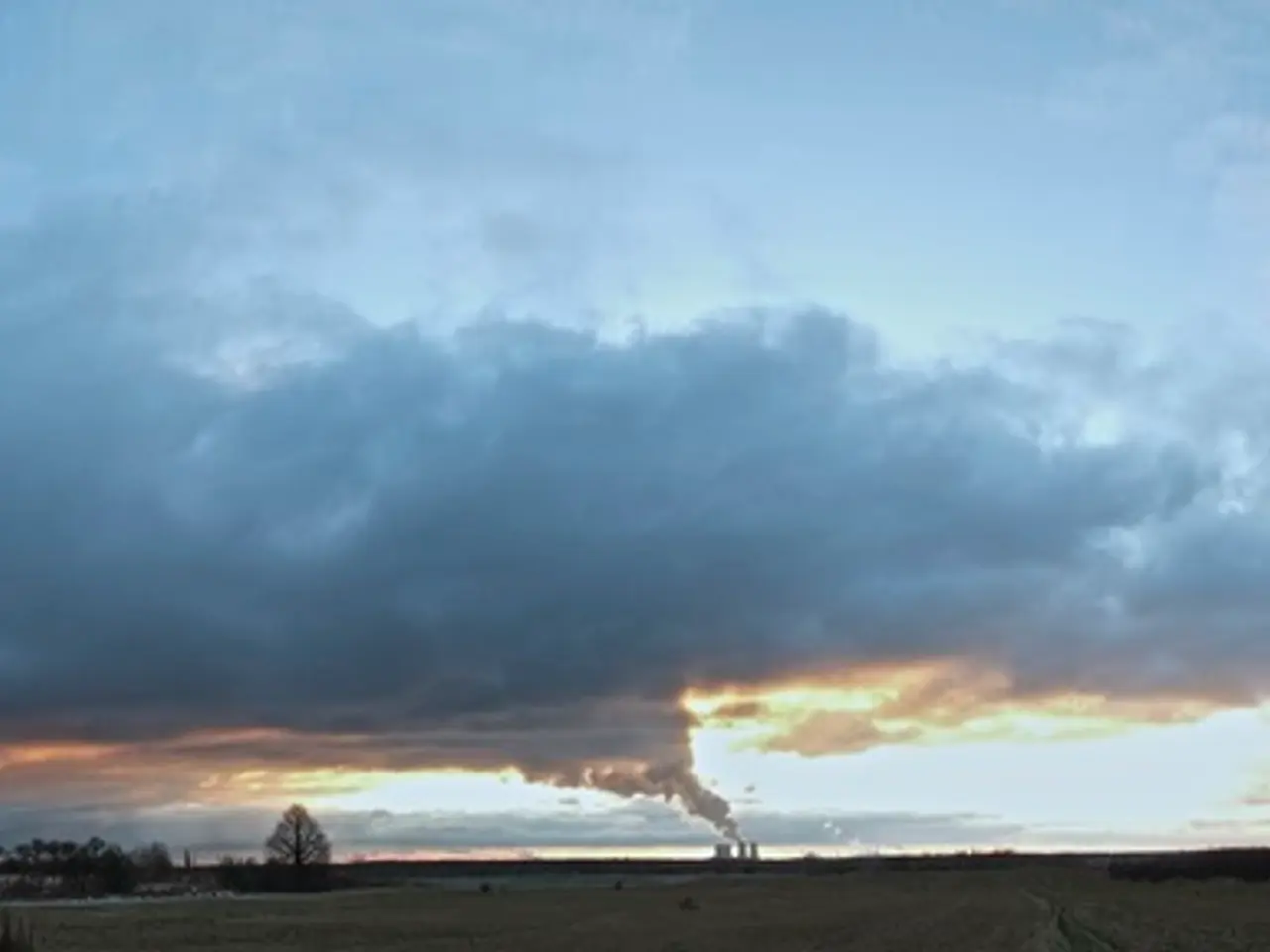Skepticism About Climate Change Previously Held; Factors That Shifted Perspective Revealed
In the heart of the 2020s, the climate countermovement remains a formidable force, continuing to deny or minimize climate change and obstruct policy responses. This global movement often aligns with right-wing populism and neoliberal globalization, using coordinated strategies to challenge mainstream climate science and delay mitigation efforts [2].
Tech corporations contribute significantly to the countermovement’s power and misinformation spread. These entities enable widespread dissemination of climate denial narratives and support industries or political groups that oppose climate policies. For instance, digital campaigns and platforms help agribusinesses and fossil fuel interests promote misleading information about methane emissions and the environmental impact of livestock farming [3]. Business interest groups and neoliberal think tanks also leverage technological and media influence to weaken environmental regulations and roll back climate science acceptance, as seen in the US political sphere [4].
One such tech corporation is X, a platform owned by Elon Musk, which has reportedly amplified right-wing and far-right users and posts, earning the title of the biggest source of fake news and disinformation across all social media platforms by a European Union official [1]. Musk has endorsed Germany’s far-right party, AfD, said he would fund British far-right ringleader Tommy Robinson, and supports Canadian political leader Pierre Poilievre, a Canadian political figure backed by Big Oil, who has voted against environmental protections more than 400 times [1].
The climate crisis is a complex issue, with roots in individualism, political apathy, and a longing for colonial power. In rural British Columbia, climate skepticism became more prevalent around 2016. Despite the United Nations declaring the 2020s as the Code Red decade for humanity [5], anti-climate sentiment is still on the rise in 2025.
However, hope lies in the resilience of community-led groups seeking to open spaces for dialogue and organizing. These groups often face a difficult choice between submitting to the confines of the nonprofit industrial complex or attempting to self-fund. In-person spaces, such as third places, are crucial for learning and the exploration of new ideas. They were key to Erin Blondeau’s transformation away from conspiracy culture and toward a curiosity about science and justice. Erin Blondeau, a writer, mother, activist, and citizen of the Cowichan Valley Métis Nation, was once a climate skeptic, her beliefs based on chemtrails and weather manipulations by HAARP [6]. However, her college education helped her break free from conspiracy culture and become a climate activist.
Foundations and benefactors are encouraged to fund grassroots groups that can then open third places with no strings attached. These spaces, free from corporate influence, can foster genuine dialogue about the climate emergency and community organizing, helping to combat the misinformation spread by tech corporations and the climate countermovement.
Recently, tech corporations have made changes that could further complicate this fight. Meta, for instance, has announced major changes to its platforms, upping political content, removing fact-checkers, and rolling back moderation on hate speech and conspiracy culture posts [7]. This move could potentially amplify the voices of the climate countermovement and further obstruct climate action.
The struggle for community spaces and the fight against the climate countermovement continue, with each side leveraging technology in their respective battles. The future of climate action depends on the resilience of community-led groups and the awareness of the general public about the ongoing misinformation spread by tech corporations and the climate countermovement.
References: 1. The Guardian 2. Nature 3. The Intercept 4. The New Yorker 5. CBC News 6. The Tyee 7. The Verge
Read also:
- Germany's three-month tenure under Merz's administration feels significantly extended
- Heavy rain causes flash floods in Hyderabad, resulting in severe waterlogging and disruptions to city life during a heavy downpour.
- Unpleasant nights plague city dwellers due to intense heatwave conditions
- Massive Colorado wildfires engulf over 120,000 acres, with firefighters hopes pinned on improved weather conditions







